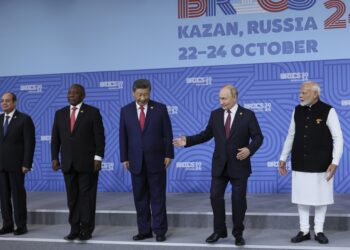Time is very important, perhaps the most important of all the magnitudes. Even for the economy.
Moreover, we Cubans have adopted a special way of referring to time through gerunds, that is, with the “ing” ending.
Actually, it wasn’t in Cuba that I heard for the first time that ending with the aim of indicating something with an indefinite duration. It was in an African country, where a local colleague said to me: “Comrade Juan, here we say that work is not to do it, but that “to be doing it.”
More than 30 years later I was surprised to see that the use of the gerund has flourished in Cuba, especially in the economy. Expressions like “we’re doing,” “we’re working,” “we’re studying,” “we’re proposing,” “we’re seeking”…fill all types of reports and public expressions. They have become a sort of fashion, actually a plague.
For the economy, just as like for life, time is the most limited factor. It is intangible, it does not return and, generally, not taking it into account in an appropriate way costs. The gerund, however, gives us the idea of continuity, it makes us feel that time does not go by, that we are in some way the owners of time, that we can manage it our own way, even though time slips through our fingers like the fine sand we have in some of our beaches.
The economy and the use of the gerund are closely related because time costs and not just money. That’s why it is so important not only to do this at the right time, but also, whenever possible, to be ahead of time.
I’ll give you a very evident example. Today, when it is not only recognized that the access to knowledge is fundamental for development based on the economic theory, our country has an unquestionable comparative advantage. It is an achievement attained in the time it had to be attained. It’s not the same having resolved the problem of illiteracy when it was resolved than “to be working” on resolving it. The gerund as a practice perhaps would have led us to still have illiterate persons in Cuba, as there still are and in abundance in many countries of this planet. Can anyone calculate that cost?
Today we have a competitive advantage, acquired based on the educational and social policies the Cuban Revolution implemented since the early 1960s and that situates us ahead of almost all our neighboring countries and makes our country “attractive” in the eyes of those who want to invest in Cuba. But not using that advantage at the correct time, to continue “studying” how to derive benefit from such a decisive characteristic can lead us to lose that advantage, be it because others beat us to it (perhaps what’s most difficult), or because we are unable to create on time the conditions / incentives to conserve what we already have. How much, in this case, have we lost and will lose thanks to the extended use of the gerund?
In the sphere of development time is a key piece, first of all because it is a process that in general becomes effective in the mid and the long term. The economic structures of a country are not changed in a short period of time, that is already a learned truth. The necessary conditions to take a leap from underdevelopment to development are not created in just a few years; that is also true. However, time is an essential factor, since while in social processes the counting of time can take centuries, the life of human beings is counted in decades.
That’s why it is important to make the GDP grow at a certain rate and not at another. If we do it as we have done until now, at less than 3 percent per year, we will take decades – surely more than four – in achieving the envisioned “prosperity.” My students, the ones I graduated this year, will see the announced “prosperity” at 64 years of their lives, of that life that is the only one they have. Therefore while we continue “discussing” what prosperity consists of (something that is also unquestionably necessary), my students will have to make crucial decisions. Again time becomes here a critical factor and the gerund is the worse way to conjugate it.
And so we can develop, the only things that can’t be missing are the persons. Without them development’s effort is impossible, without them that effort has no sense. Twenty years is the tine that the country took in “obtaining” a highly qualified person (12 of primary and secondary studies, five of university studies, and at least three of practice to acquire the required skills).
While the 20 years in the accounting of the history of humankind is irrelevant, in the accounting of the time of human beings it is at least the fourth of their “useful period.” And despite the fact that Carlos Gardel affirms the contrary in that famous tango, 20 years is “something.”
Achieving development takes time, it cannot be understood as a short-term matter, but development cannot be the same as the “horizon,” that is to say, that imaginary line that moves away from us to the extent that we get nearer to it. Development, prosperity, must be tangible and achievable in a reasonable period of time; it should be “touchable” day to day. Development must be a long-term goal that can be touched, enjoyed, perceived every day; that every day it generates hopes in a reachable future, without a gerund that indefinitely prolongs the purpose.
Today when we anxiously seek the sources of growth needed to come out of the 2016 economic stagnation, when we look at foreign investment as one of the solutions not just in the short term, we must understand that the two principal resources to grow are time and the quality of the persons who inhabit our country. The “Cubanensis sapiens” is a species which we must conserve for all times, perhaps here the gerund would be worth it, although I would prefer another conjugation, for example “we have conserved it” or better still “we will continue conserving it.”
Creating opportunities so that our population, in its entirety, uses the acquired knowhow and skills in any of the sectors (state-run, cooperative, private….) is decisive to build the country we want. But there is a time for everything.
Without persons we won’t have a country, without realized persons we won’t have a prosperous country. To continue “studying,” “continue working” to create those conditions does not dissolve the temporary horizon; it places us in an infinite time. It would be best to banish the gerund.










